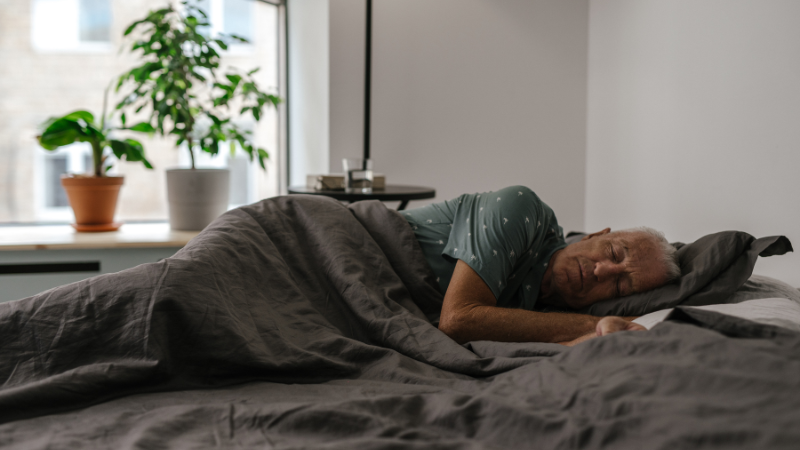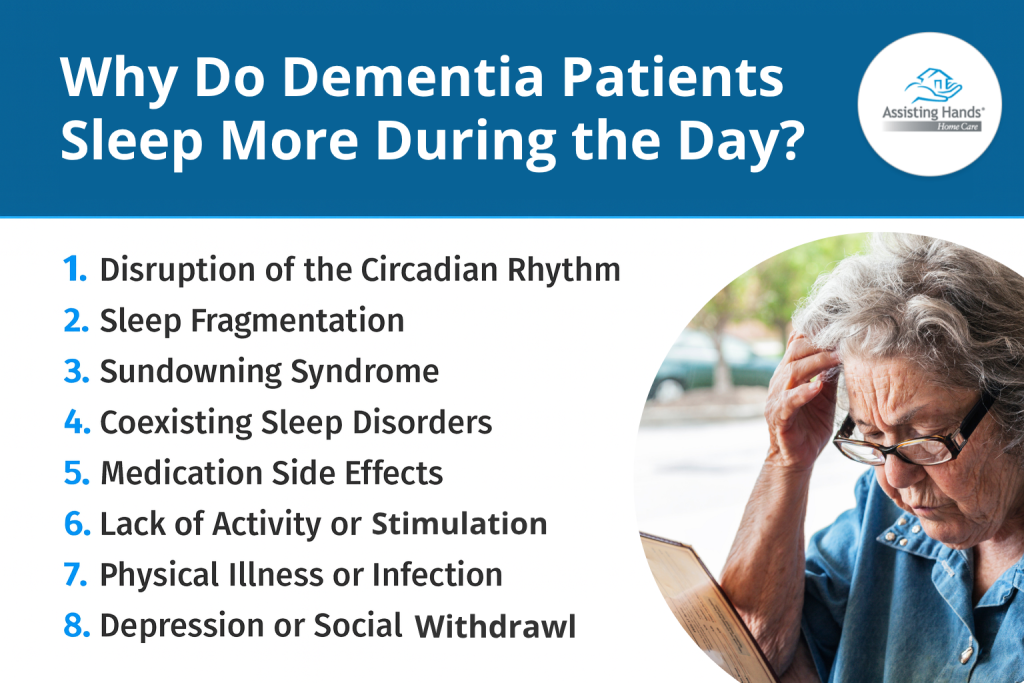
Sleep changes are among the most noticeable and sometimes confusing symptoms of dementia. Many caregivers find themselves wondering whether it’s normal for a loved one with dementia to sleep for hours or sleep through the day. While it can be alarming at first, daytime sleepiness is a common experience, especially in the mid-to-late stages of the disease. Still, it’s important to understand when excessive sleep is typical and when it could be a sign of something more serious.
Key Takeaways:
Yes, many dementia patients sleep a lot during the day, especially in the mid-to-late stages of the condition. This often happens because dementia disrupts the brain’s internal clock, leading to irregular sleep patterns and fragmented rest at night. However, sudden changes in sleep behavior or extreme fatigue may signal an underlying health issue or medication side effect and should be evaluated by a doctor.

 1. Disruption of the Circadian Rhythm
1. Disruption of the Circadian Rhythm
